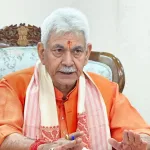As the Russia-Ukraine war drags into its third year, the global consequences of this conflict have only deepened, with devastating human tolls and economic shocks reverberating worldwide. A resolution remains elusive, yet history suggests that all wars ultimately end in negotiations—a prospect that increasingly dominates discussions on the war’s future trajectory. Among the players posited to influence the conflict’s resolution is former U.S. President Donald Trump, whose bold yet controversial claims of brokering peace in “24 hours” have generated significant attention.
The War’s Stalemate and Economic Fallout
The protracted war has inflicted immense suffering, with over a million casualties since 2022. Despite NATO’s support for Ukraine, including financial aid and military equipment, a decisive victory against Russia—a nation with one of the most formidable militaries in the world—remains distant. NATO’s Secretary General Mark Rutte’s recent remarks emphasized the alliance’s commitment to bolstering defense spending, but they also underscored the deepening economic strain on Europe. Rising energy prices, triggered by the cessation of Russian gas supplies, have eroded living standards, fuelling discontent across the continent.
The economic repercussions of the war extend beyond Europe. The Global South has largely resisted U.S.-led sanctions on Russia, with countries like India significantly increasing oil imports from Moscow. The high cost of U.S.-exported liquefied natural gas (LNG) has further exacerbated the financial burden on European nations, leading to growing opposition to the war and U.S. policies among European populations. Surveys indicate a shifting public sentiment, with majorities in countries like Germany, France, and Italy favoring negotiations over prolonged conflict.
The Call for Negotiations
The escalating economic and political fallout has amplified calls for peace. In Ukraine itself, over half of the population supports immediate negotiations to end the war, reflecting war-weariness among its citizens. However, significant barriers persist; including disputes over NATO membership for Ukraine and the rights of the Russian-speaking minority in the country’s east and southeast. Any lasting resolution would require addressing these issues, alongside broader geopolitical tensions between NATO and Russia.
Trump’s Ambition to Mediate
Amid this fraught landscape, Donald Trump’s assertion that he could end the war in “24 hours” stands out. While critics dismiss his claim as hyperbolic, Trump’s track record suggests he may adopt an unconventional approach to diplomacy. During his presidency, Trump broke with tradition by directly engaging with adversaries such as North Korea’s Kim Jong-un, demonstrating his preference for bold, high-stakes negotiations.
Trump’s stance on the Russia-Ukraine conflict aligns with his broader critique of NATO and U.S. foreign policy. He has frequently called for European nations to shoulder greater financial responsibility for their defence while questioning the efficacy of U.S. involvement in overseas conflicts. Now re-elected, Trump could leverage this perspective to advocate for a negotiated settlement, potentially involving compromises on NATO’s expansion and Ukraine’s territorial disputes.
Challenges to Trump’s Approach
While Trump’s direct and transactional style of diplomacy may offer a fresh perspective, it also carries risks. Critics argue that his emphasis on deal-making could prioritize expedience over justice, potentially legitimizing Russia’s territorial claims in Ukraine. Furthermore, Trump’s polarizing reputation and strained relations with NATO allies during his presidency may hinder his ability to build consensus among Western nations.
Moreover, the conflict is deeply entrenched, with both Russia and Ukraine maintaining maximalist positions. Russia views NATO’s presence in Eastern Europe as an existential threat, while Ukraine seeks to reclaim all territories occupied by Russian forces. Bridging these divides would require not only political will but also significant concessions—an outcome that may be difficult to achieve under Trump’s leadership or that of any other leader.
A Path Forward
Despite the challenges, the necessity for negotiations grows more urgent. As the No Cold War campaign emphasizes, ending the war requires pragmatic steps, including an immediate ceasefire, recognition of linguistic and cultural rights within Ukraine, and the cessation of NATO’s military involvement. Redirecting resources from military expenditures to social and economic recovery could help address the broader consequences of the conflict.
Trump’s potential role in this process cannot be dismissed outright. His unconventional style may prove effective in breaking through the diplomatic impasse, particularly if he can engage directly with Russian President Vladimir Putin. However, achieving a sustainable peace will require multilateral cooperation and a commitment to addressing the root causes of the conflict, including NATO’s eastward expansion and the marginalization of Ukraine’s Russian-speaking population.
In conclusion, the Russia-Ukraine war stands at a crossroads. Whether through Trump’s intervention or broader international efforts, the path to peace lies in negotiation. The stakes are high—not just for Ukraine and Russia but for a world grappling with the economic and geopolitical fallout of this devastating conflict.
(Author is Ph. D in Political Science from University of Kashmir. He can be reached at [email protected])








